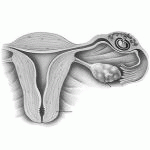Gynaecology
|
6 may 2015 14:34:45 |
| QF2011: a protocol to study the effects of the Queensland flood on pregnant women, their pregnancies, and their children`s early development (BMC Pregnancy and Childbirth) |
|
Tweet Background:
Retrospective studies suggest that maternal exposure to a severe stressor during pregnancy increases the fetus’ risk for a variety of disorders in adulthood. Animal studies testing the fetal programming hypothesis find that maternal glucocorticoids pass through the placenta and alter fetal brain development, particularly the hypothalamic-pituitary-adrenal axis. However, there are no prospective studies of pregnant women exposed to a sudden-onset independent stressor that elucidate the biopsychosocial mechanisms responsible for the wide variety of consequences of prenatal stress seen in human offspring. The aim of the QF2011 Queensland Flood Study is to fill this gap, and to test the buffering effects of Midwifery Group Practice, a form of continuity of maternity care.Methods/designIn January 2011 Queensland, Australia had its worst flooding in 30 years. Simultaneously, researchers in Brisbane were collecting psychosocial data on pregnant women for a randomized control trial (the M@NGO Trial) comparing Midwifery Group Practice to standard care. We invited these and other pregnant women to participate in a prospective, longitudinal study of the effects of prenatal maternal stress from the floods on maternal, perinatal and early childhood outcomes. Data collection included assessment of objective hardship and subjective distress from the floods at recruitment and again 12 months post-flood. Biological samples included maternal bloods at 36 weeks pregnancy, umbilical cord, cord blood, and placental tissues at birth. Questionnaires assessing maternal and child outcomes were sent to women at 6 weeks and 6 months postpartum. The protocol includes assessments at 16 months, 2½ and 4 years. Outcomes include maternal psychopathology, and the child’s cognitive, behavioral, motor and physical development. Additional biological samples include maternal and child DNA, as well as child testosterone, diurnal and reactive cortisol.DiscussionThis prenatal stress study is the first of its kind, and will fill important gaps in the literature. Analyses will determine the extent to which flood exposure influences the maternal biological stress response which may then affect the maternal-placental-fetal axis at the biological, biochemical, and molecular levels, altering fetal development and influencing outcomes in the offspring. The role of Midwifery Group Practice in moderating effects of maternal stress will be tested. |
| 142 viewsCategory: Gynaecology |
 Existential security is a necessary condition for continued breastfeeding despite severe initial difficulties: a lifeworld hermeneutical study (International Breastfeeding Journal) Existential security is a necessary condition for continued breastfeeding despite severe initial difficulties: a lifeworld hermeneutical study (International Breastfeeding Journal)Midwives’ perspectives of their ability to promote the oral health of pregnant women in Victoria, Australia (BMC Pregnancy and Childbirth) 
|
| blog comments powered by Disqus |
MyJournals.org
The latest issues of all your favorite science journals on one page
The latest issues of all your favorite science journals on one page



